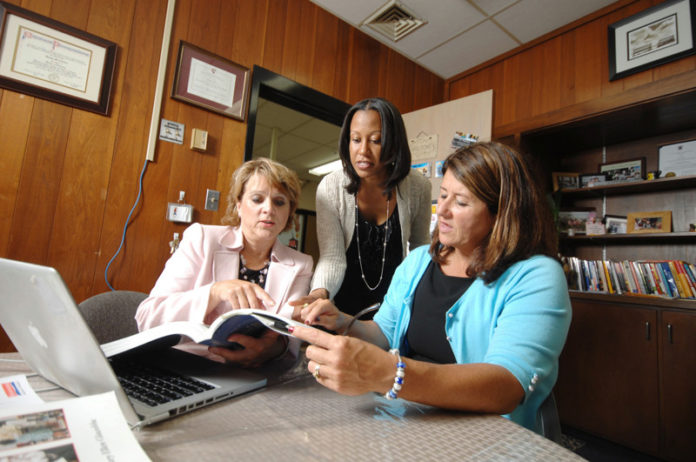
The Learning Community, a public charter school, and its sister organization, The Teaching Studio, have developed an innovative, successful model for helping children to become better learners in urban school districts with high levels of poverty.
Based in Central Falls, the Learning Community has 100 employees and serves more than 560 students in kindergarten through grade eight in Pawtucket and Central Falls. It was founded in 2004 with the belief that literacy empowers each individual to have a voice and assume community responsibility.
The results have been impressive: The Learning Community is the highest-performing urban middle school in math and writing, according to state testing data. Students have outperformed their peers despite a poverty rate that is 90 percent, nearly twice the state average of 48 percent for urban districts. At any given time, the school has a waiting list of 800 to 1,000 students, said school officials.
Meg O’Leary, co-director of the school, said, “I think that one of the traps that we get into as educators is to have a silver bullet, to find the textbook publisher who has figured out the right curriculum for us to adopt and learn,” she said. “Here, our mantra is that there is not one thing that we’re going to package and purchase and use. We are student-focused, instead of curriculum-focused.”
O’Leary said that the approach employs common sense, choosing from an array of tools to meet the individual needs of students. O’Leary believes it is wrong to play the blame game, blaming either parents or teachers for poor outcomes. “We don’t argue about whose job it is to educate students; it’s ours,” she said. “It’s our job to engage the family.”
Coupled with the charter public school is The Teaching Studio, a consulting group that provides customized support for teachers, schools and districts to improve instruction and make measurable gains in student achievement.
In the school year 2012-2013, The Teaching Studio partnered with 170 educators from 11 public schools that serve more than 3,000 public school students to improve reading. The initiative is supported by $1.8 million in grants from The Rhode Island Foundation and the Kellogg Foundation.
Christine Alves, director of The Teaching Studio, talked about the importance of creating a place where teachers can be heard. “We serve as an instructional coach to the learning community,” Alves said. “And, we put a lot of importance on listening to what teachers are telling us. We want to hear what the obstacles are.” For a lot of problems, there are solutions, Alves continued. “But it might take an extra pair of eyes to troubleshoot with you, to advocate outside of the classroom.” •










